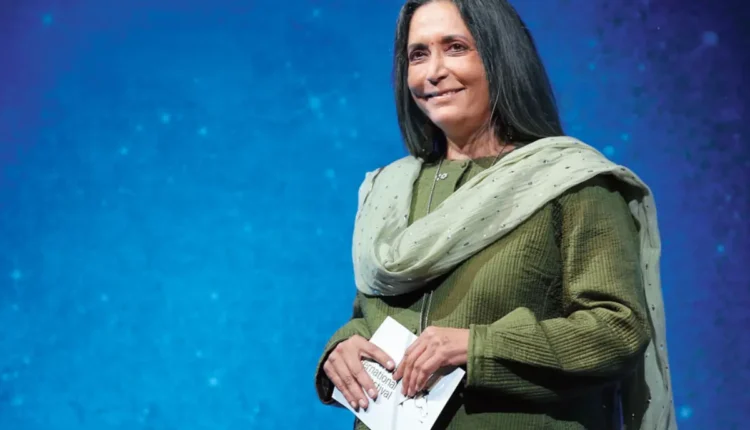In the realm of cinema, there are visionaries who transcend boundaries, weaving narratives that resonate deeply with audiences worldwide. Deepa Mehta, an acclaimed film director and screenwriter, stands as a shining example of such a trailblazer.
From her early life experiences in India to her groundbreaking contributions to Canadian cinema, Mehta’s journey is nothing short of inspirational.
Deepa Mehta’s Early Life and Influences
Born on September 15, 1950, in Amritsar, Punjab, Deepa Mehta’s childhood was shaped by the tumultuous aftermath of the Partition of India. Growing up near the militarized border with Pakistan, she witnessed firsthand the scars left by sectarian conflict.
These experiences would later fuel her creative endeavors, instilling in her a sense of social awareness and empathy.
Mehta’s cinematic journey began to take shape during her formative years in New Delhi. Exposed to a diverse array of films, ranging from Indian commercial cinema to the works of acclaimed directors like Satyajit Ray and Truffaut, she developed a deep appreciation for storytelling in its various forms. It was this eclectic mix of influences that would ultimately inspire her to pursue a career in filmmaking.
The Evolution of a Filmmaker
After completing her education at the Lady Shri Ram College for Women, University of Delhi, Mehta embarked on a journey that would lead her to Canada. Settling in Toronto in 1973, she soon found herself immersed in the vibrant tapestry of Canadian culture.
Collaborating with her husband, Paul Saltzman, and her brother, Dilip Mehta, she co-founded Sunrise Films, marking the beginning of her prolific career behind the camera.
Mehta’s directorial debut came in 1991 with “Sam & Me,” a poignant exploration of intergenerational bonds set against the backdrop of Toronto’s Parkdale neighborhood.
The film garnered critical acclaim, paving the way for Mehta to tackle a diverse range of subjects with sensitivity and depth. From the tender romance of “Camilla” to the searing drama of “Heaven on Earth,” her work delves into the complexities of the human experience with unwavering honesty.
The Elements Trilogy: A Cinematic Triumph
Undoubtedly, Deepa Mehta’s most renowned contribution to cinema lies in her Elements Trilogy – “Fire,” “Earth,” and “Water.” These films, each addressing pressing social issues with grace and poignancy, cemented her reputation as a fearless storyteller unafraid to confront taboo subjects.
“Fire” (1996) sparked controversy with its portrayal of same-sex love in conservative Indian society, igniting a dialogue on gender and sexuality.
“Earth” (1998) offered a poignant reflection on the horrors of partition, drawing from Mehta’s own experiences as a witness to its aftermath. Finally, “Water” (2005) shed light on the plight of widows in colonial India, prompting a call to action for social change.
Recognition and Legacy
Deepa Mehta’s contributions to cinema have not gone unnoticed. From prestigious awards such as the Genie Award for “Bollywood/Hollywood” to the Governor General’s Performing Arts Award for Lifetime Artistic Achievement, she has been honored for her groundbreaking work.
Yet, perhaps her greatest legacy lies in the impact of her storytelling, which continues to inspire audiences around the globe.
Also Read: Adam Mamawala: Breaking Stereotypes, One Joke at a Time

